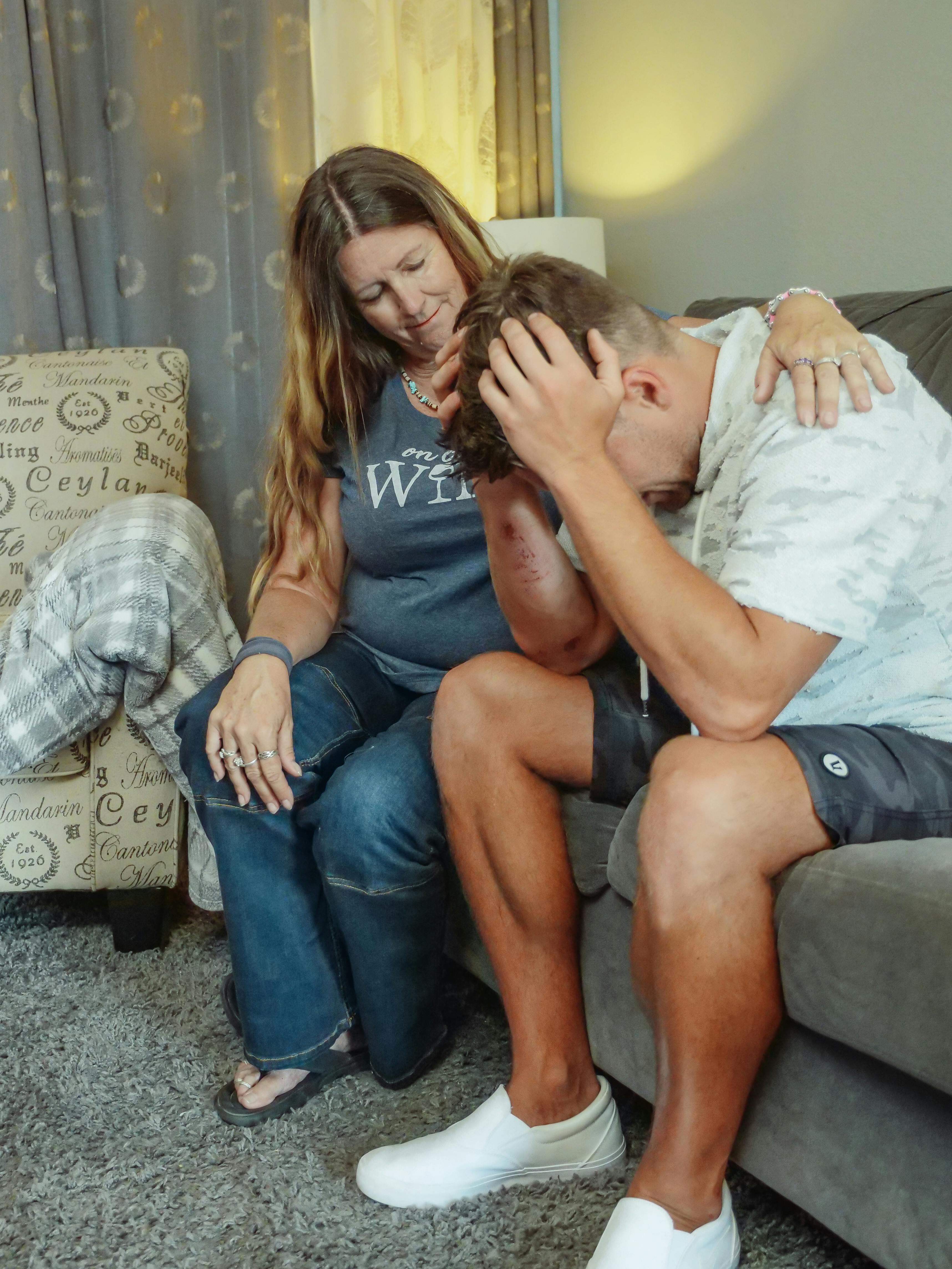How to Handle Mental Health Flare-Ups During Busy Seasons
Aug 27, 2025
When life speeds up—whether it’s the holiday rush, end-of-year deadlines, back-to-school chaos, or tax season—it’s common for mental health to take a hit. Stress, anxiety, and even depression can feel heavier during these times, leading to what many people experience as “flare-ups.” These moments don’t mean you’re failing or losing progress; they’re a natural response to added pressure and shifting routines. The good news is, there are ways to navigate them with care. In this post, we’ll explore practical strategies and mindset shifts to help you manage mental health flare-ups during busy seasons, so you can stay grounded even when life feels overwhelming. Learn more about the art of saying no without guilt by clicking here.
Table of Contents
Introduction
Busy seasons—whether it’s the holidays, major work deadlines, back-to-school time, or even tax season—often bring an extra layer of stress that can weigh heavily on our mental health. It’s common for feelings of anxiety, overwhelm, or depression to flare up when life demands more than usual. If you’ve noticed that your mood dips, your patience shortens, or your thoughts feel harder to manage during these hectic times, you’re not alone.
These “mental health flare-ups” are a normal response to increased pressure and shifting routines. The good news is that there are practical ways to navigate them without losing your footing. In this post, we’ll explore strategies and mindset shifts that can help you manage mental health challenges during busy seasons, so you can care for yourself while keeping up with life’s demands.

What Is a Mental Health Flare-Up
A mental health flare-up is a temporary period when symptoms become more intense or harder to manage. For some, this might look like sudden spikes in anxiety, an increase in depressive thoughts, heightened irritability, or even panic attacks. Flare-ups don’t mean you’re “back at square one” in your mental health journey—they’re simply a signal that your mind and body are under extra strain.
Busy seasons can trigger these flare-ups because so much of your usual balance gets disrupted. When routines shift, obligations pile up, and financial or time pressures increase, your coping reserves can wear thin. Add in a lack of quality rest or downtime, and even small stressors can feel overwhelming. Understanding that these flare-ups are a natural response to stress—not a personal failure—can help you approach them with compassion and preparation.
Recognizing the Signs Early
One of the most important steps in managing mental health flare-ups is catching the warning signs before they escalate. These signs can look different for everyone, but some common red flags include:
-
Trouble sleeping or oversleeping
-
Racing thoughts or difficulty focusing
-
Mood swings or irritability
-
Pulling away from friends, family, or social activities
-
Heightened self-criticism or a constant sense of overwhelm
Noticing these patterns early can make a big difference. The sooner you recognize that your mental health is shifting, the sooner you can take action—whether that means slowing down, reaching out for support, or leaning on coping strategies that help you regain balance. Early recognition isn’t about avoiding stress altogether; it’s about giving yourself the best chance to respond with care before symptoms take a stronger hold.

Practical Coping Strategies
When life gets hectic, it’s easy to let self-care slide. But small, intentional choices can make a big difference in preventing or easing mental health flare-ups. Here are some practical strategies you can lean on during busy seasons:
a. Protecting Your Routine
-
Prioritize basics: Keep your meals, sleep, and movement as steady as possible—even when your schedule feels unpredictable.
-
Set boundaries: It’s okay to say “no” when you’re stretched too thin. Overcommitting can quickly drain your energy and resilience.
b. Stress-Relief Habits That Fit Into Busy Days
-
Take micro-breaks: Even five minutes of stretching, deep breathing, or a short walk can reset your stress levels.
-
Express yourself quickly: Jotting down thoughts in a journal or recording a voice note can help release tension and clear mental clutter.
-
Ground yourself: Use simple techniques like the 5-4-3-2-1 sensory check (noticing things you can see, touch, hear, smell, and taste) to calm racing thoughts.
c. Mindset Shifts
-
Reframe expectations: Remind yourself that “done is better than perfect.” Perfectionism often fuels unnecessary stress.
-
Keep perspective: Remember that busy seasons are temporary. The pressure you’re feeling won’t last forever.
-
Show self-compassion: Treat yourself with kindness when things don’t go as planned, just as you would with a friend.
d. Social & Emotional Support
-
Reach out: Lean on trusted friends or family who can offer encouragement or a listening ear.
-
Schedule check-ins: Therapy sessions or coaching calls can provide extra support during high-stress months.
-
Communicate needs: Let loved ones know if you need space, understanding, or help with daily responsibilities.
Emergency Toolkit for Flare-Ups
Even with good routines and healthy coping habits, flare-ups can still happen. Having an “emergency toolkit” ready means you won’t have to scramble when symptoms spike—you’ll already know what helps you calm down and reset. Consider putting together a personal list of quick-access tools, such as:
-
A calming playlist or favorite songs that ground you
-
A guided meditation or breathing exercise app
-
A comforting book, show, or movie that feels familiar and safe
-
Journaling prompts or a notebook for rapid emotional release
-
Pet cuddles, a weighted blanket, or another source of physical comfort
It’s also wise to keep crisis resources visible—like hotline numbers, local support contacts, or a trusted friend’s number saved as a quick dial. That way, if a flare-up feels overwhelming, you’ll know exactly where to turn for immediate help.

Long-Term Prevention
While it’s important to manage flare-ups in the moment, prevention is just as valuable. Building consistent habits outside of busy seasons can reduce the intensity of symptoms when life inevitably gets hectic again.
-
Prioritize regular self-care: Think of self-care as maintenance, not a luxury. Regular exercise, nourishing meals, and consistent sleep set a strong foundation for your mental health.
-
Maintain a baseline of wellness habits: Simple daily practices—like journaling, mindfulness, or short walks—can help keep stress levels steady, making flare-ups less severe when they do arise.
-
Schedule downtime: Treat rest as non-negotiable. Block out time on your calendar for relaxation, hobbies, or simply doing nothing. Protecting your energy in quiet seasons strengthens your resilience when busy ones arrive.
By taking care of your mental health consistently, you create a buffer that makes it easier to navigate high-pressure times without feeling completely drained.
Conclusion
Experiencing a mental health flare-up doesn’t mean you’ve failed—it’s simply your mind and body’s way of telling you to slow down and give yourself the care you need. These moments are not setbacks but signals, and responding with compassion can make all the difference.
Remember, you’re not alone. Many people struggle during busy seasons, and reaching out for support is a sign of strength, not weakness.
If you know a busy season is ahead, start preparing your mental health plan today. By putting simple strategies in place, you can navigate stressful times with more balance, resilience, and peace of mind.
More Resources
If you are interested in learning more, click here. For more information on this topic, we recommend the following:
Are you passionate about helping others unlock their potential? Our Board Certified Coach (BCC) training, approved by the Center for Credentialing & Education (CCE), equips you with the skills, tools, and certification needed to thrive as a professional coach. Take the next step toward a rewarding coaching career with our comprehensive program! Click here to learn more!
Help in a Hurry: Simple Tips for Finding Peace When You're Overwhelmed, Anxious, or Stressed
The Art of Letting Go: Stop Overthinking, Stop Negative Spirals, and Find Emotional Freedom
DISCLAIMER: As an Amazon Associate we earn from qualifying purchases. This post may contain affiliate links that will reward us monetarily or otherwise when you use them to make qualifying purchases. In addition, there may be non-Amazon affiliate links in this post which means we may receive a commission if you purchase something through a link. However, be assured that we only recommend products that we see genuine value in.
The information provided is for educational purposes only and does not constitute clinical advice. Consult with a medical or mental health professional for advice.
Finances do not have to prevent you from getting support.
Come join our support community.
Where would you like us to send the free support group invite and complimentary workbook?
Your Information Will Be Kept Private




